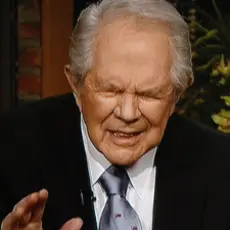Harvey Cox, a Hollis Professor of Divinity at Harvard, writes in the Boston Globe that a new generation of evangelicals leaders are emerging – ones how do not necessarily share the Right’s political agenda
When a little-known Baptist preacher and self-styled fundamentalist named Jerry Falwell, at the urging of conservative Republican campaign specialists, organized what he called The Moral Majority in the late 1970s, the religious core principles of the original fundamentalist movement were nowhere in sight. One heard little about theological issues like the virgin birth or even the inerrancy of scripture. This was an explicitly political movement.
…
At first the alliance Falwell forged with the most conservative wing of the Republican Party paid off handsomely for both partners. The religious right mobilized perhaps millions of voters for Republican candidates, and in turn, beginning with Ronald Reagan, Republican office holders rewarded the movement's leaders with briefings, phone calls, and access to the highest level of the administration, including the Oval Office. Even though by the 1990s Falwell's Moral Majority had faded, it was succeeded by Pat Robertson's Christian Coalition and James Dobson's Focus on the Family. Both are also driven by explicitly political agendas.
…
Meanwhile, a series of missteps and embarrassments-the religious right's heavy-handed intrusion into the Terry Schiavo case, the intemperate statements by Falwell (who attributed 9/11 to God's judgment on America for its gays and feminists) and by Pat Robertson (who advocated the assassination of the president of Venezuela on his nationwide television program), and the criminal investigation of Ralph Reed, the former director of the Christian Coalition-appear to have driven more moderate evangelicals away from the old religious right.
Cox writes that new leaders like Joel Osteen, Rick Warren, and Jim Wallis care about a far wider range of issues, such as the environment and poverty. The key difference, Cox notes, between the Falwell/Robertson side and the Warren/Wallis side is that the latter
[T]ake the life and teaching of Jesus more seriously than the religious right, which bases its positions not on the gospels, but on what they call ``traditional values" and ``family values." But Jesus himself had little to say about family values; rather, he emphasized love of neighbor, and even of the enemy. And he often criticized the ``traditional values" of his own time so harshly that the anxious guardians of those traditions viewed him as a menace.
Cox sees a “changing of the guard and the emergence of a younger constituency with different ideas” and states that “the progressive social impulse of early 20th century evangelicalism appears to be making a comeback in an America.”





